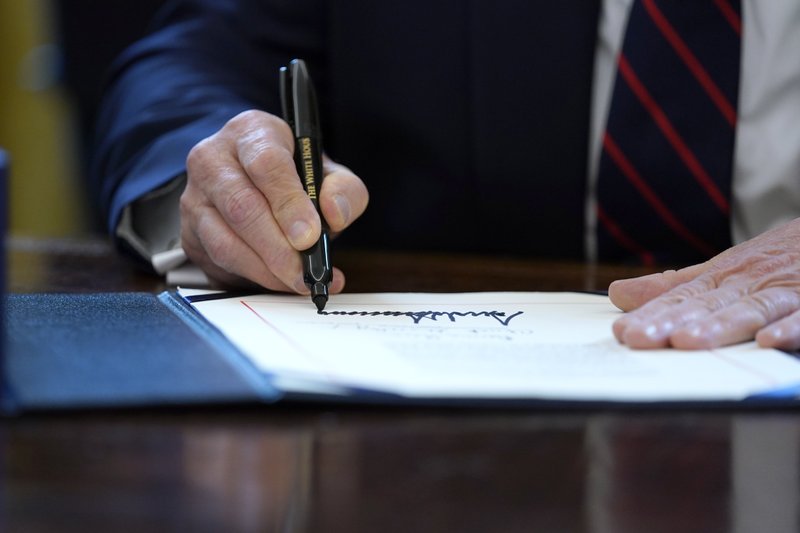The coronavirus relief payments expected to go out later this month have raised questions about who is eligible for the benefit and how it will be disbursed.
U.S. Sen. Tom Cotton's office provided responses earlier this week based on calls it has fielded from constituents.
Individual income tax filers with adjusted incomes of less than $75,000 last year will receive the full $1,200 in the next three weeks, the senator's office said. The benefit will be reduced by $5 for every $100 of income over $75,000.
Married couples filing jointly with combined incomes of less than $150,000 last year will get $2,400 plus $500 for every dependent under 17. The payment will be reduced by $5 for every $100 of income over $150,000.
Income eligibility is based on 2019 tax filings. For those who haven't filed for last year, 2018 filings will be used to determine eligibility.
Social Security beneficiaries who haven't filed tax returns for 2019 and 2018 don't have to file a tax return to receive assistance payments. Their 2019 SSA 1099 Social Security Benefit Statement, the tax form mailed each year in January to Social Security beneficiaries, will be used to send payments.
The forms are sent to retired workers, workers with disabilities, eligible family members and survivors but not to Supplemental Security Income recipients. SSI beneficiaries, who are primarily adults with disabilities, who also receive Social Security benefits, will not need to file a tax return to receive the assistance payment.
Cotton's office said Pandemic Unemployment Assistance Congress passed last week will provide an additional 13 weeks of unemployment insurance and an additional $600 a week through July 31 for people who lost their job as a result of the COVID-19 pandemic. The new program extends unemployment coverage to 29 weeks, expanding the 16 weeks of coverage the state normally offers.
The state said the Arkansas Division of Workforce Services processed more than 30,000 unemployment claims last week, a surge exceeding the roughly 1,000 it processes in a normal week. Gov. Asa Hutchinson said Thursday the state's unemployment insurance fund can absorb the increase.
"We have a very robust and strong unemployment insurance fund employers have paid into," he said during his daily briefing. "That will be utilized to pay the unemployment insurance claims. In addition to that we're going to get federal assistance to make sure those funds are continued, so there's not in the short term any challenge there at all."
Arkansas Secretary of Commerce Mike Preston said Wednesday the state was waiting on federal guidance on how to administer unemployment claims for the self employed, independent contractors and gig-economy workers.
"Please hold off if you're one of those workers who fall into those categories, because right now we cannot help you until we get guidance from the Department of Labor" he said at Wednesday's briefing.
Cotton's office said self-employed workers who are unemployed as a result of the coronavirus will receive $600 a week through July 31, plus an amount determined by the Arkansas Division of Workforce Services.
Local on 04/03/2020
